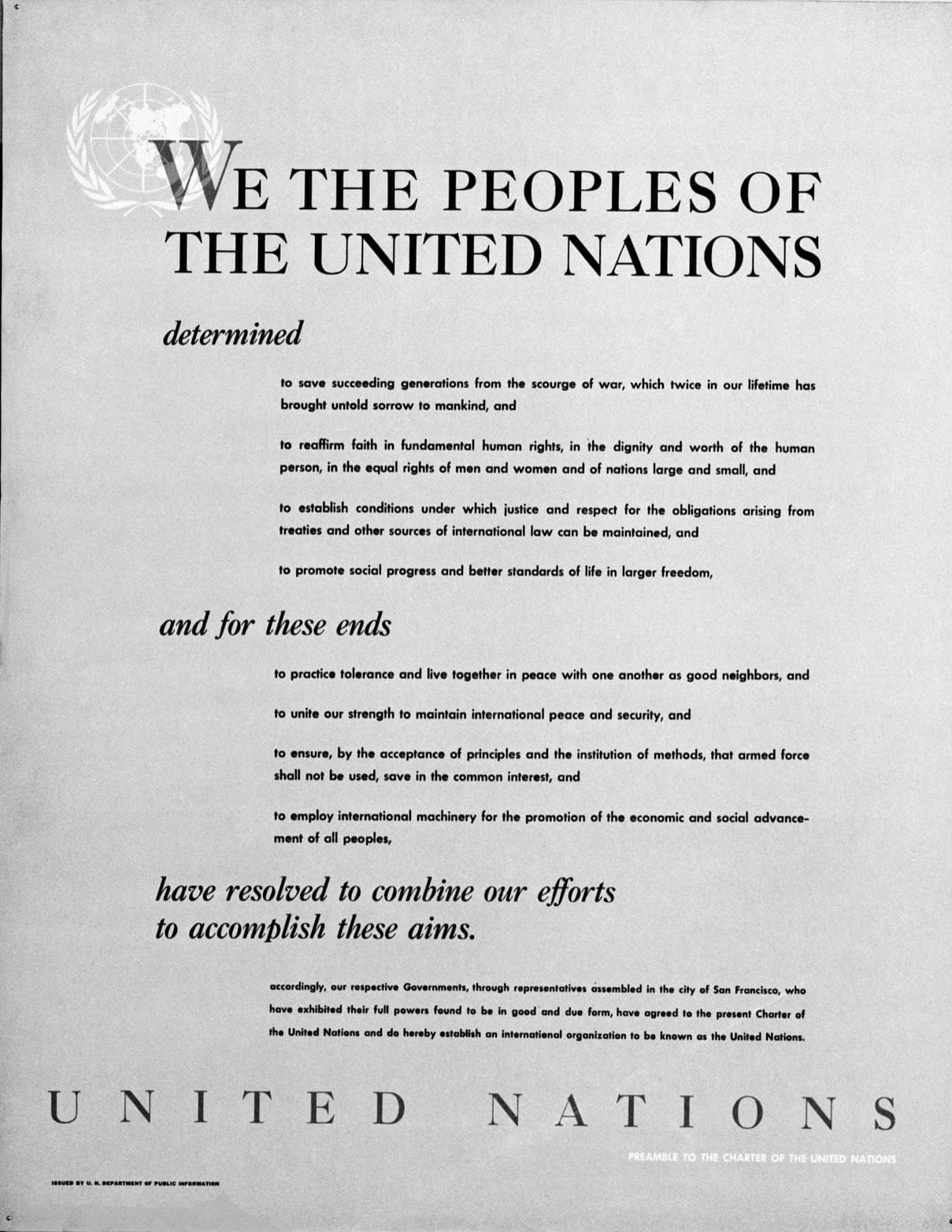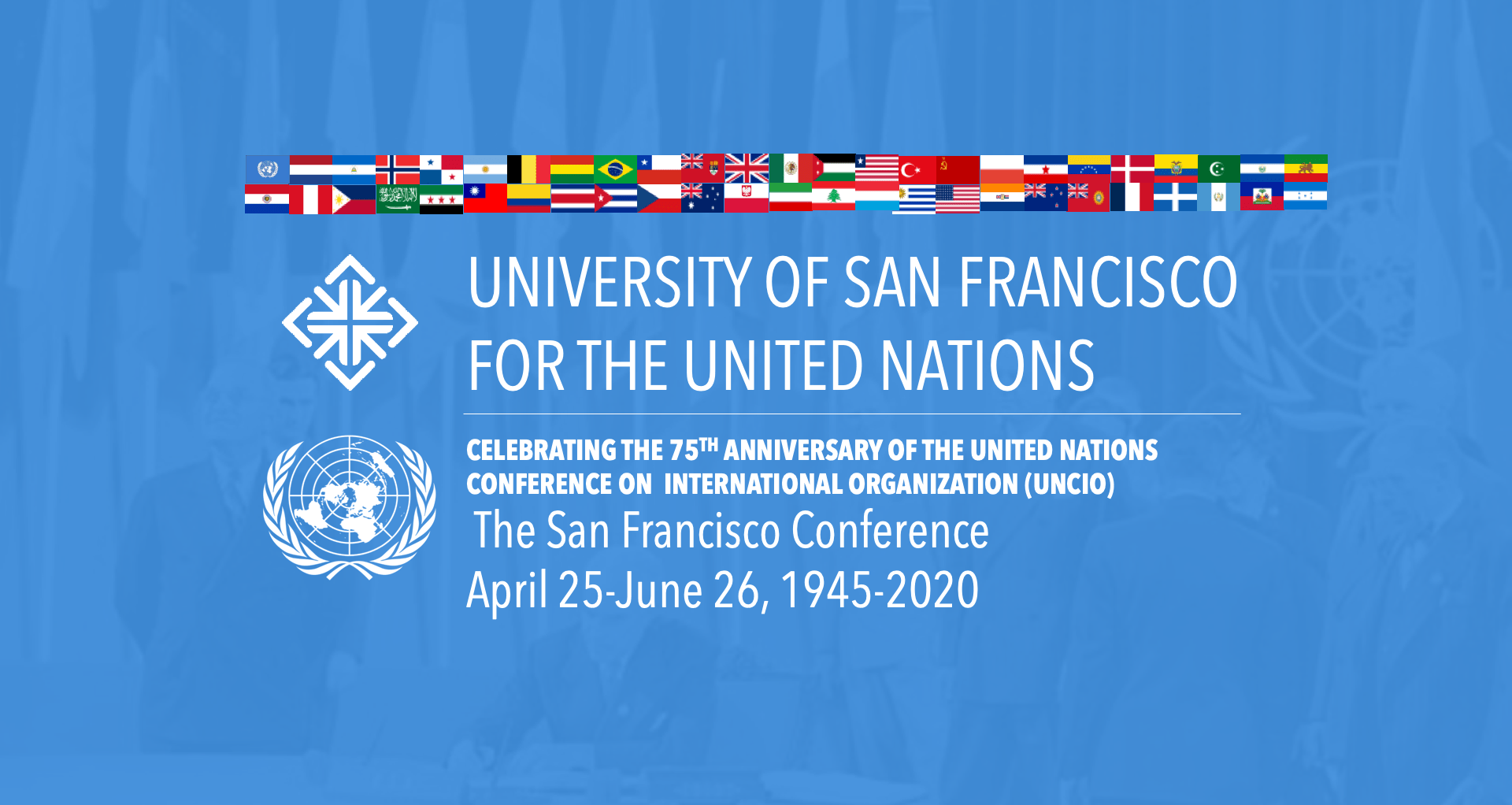 We the Peoples of the United Nations…
We the Peoples of the United Nations…
Celebrate the 75th anniversary by reflecting and learning about the UN Charter with its bold aspirations and promises for a better world. The 1945 San Francisco Conference, officially called the United Nations Conference on International Organizations (UNCIO) was held at the San Francisco War Memorial Center between April 25 to June 26, 1945.
It was the largest international gathering at that time that finalized the constitution of the UN, the most important international organization charged for the preservation and promotion of peace, security, human dignity and human rights.
In 1945 nations were at war and people demanded peace. Fifty countries gathered in San Francisco to lay the foundation for a stable peace. They signed a document, the UN Charter, that made a commitment to create an international organization to maintain international peace and security, promoting development and humanitarian assistance, upholding international law, promoting human rights and democracy. Today, that mission is re-focussed on international priorities such as the protection of forced migrants and refugees, fighting climate change, promoting sustainable development goals, and building a better future as was envisioned by its founders 75 years ago. Read more about the UN today >>
The University of San Francisco (USF), in partnership with local nonprofit and civil society organizations, is hosting an event on April 25, 2020 to commemorate these important accomplishments of making the world a more peaceful, sustainable, and better place for current and future generations.
The discussions and perspectives debated during these two months and also other gatherings and conferences during WWII demonstrates the hopes and challenges of a political process embedded in today’s international relations and aspirations for the global common good.
The international organization and intergovernmental relations represented by today’s United Nations system reveals more than a sovereign nation competitive field. It is a forum where multiple voices find a common direction and set principled priorities and achievable goals through multilateralism, multi-stakeholders and multi-sector partnerships as expressed in the current 2030 Agenda for the Sustainable Development Goals (SDGs).
The University of San Francisco will be exploring the role of civil society organizations and their contributions during the conference. They used the term “consultants” and “observers” to describe participants who interacted with the official “delegates” of the 50 countries who ultimately signed the UN Charter on June 26, 1945.
This website / blog offers some background information and useful links to learn more about these important historical events. We hope that you, the reader, will engage in these explorations and find this information inspiring and encourage you to make your own commitment to making the world a better place as enthused and entrusted to all of us by the UN Charter Preamble: We the Peoples of the United Nations…
In 2000, United Nations Secretary General Kofi Annan wrote, “We the Peoples: The Role of the United Nations in the 21st Century” and observed how inter-governmental organizations are ultimately an organization of people and for the peoples.

